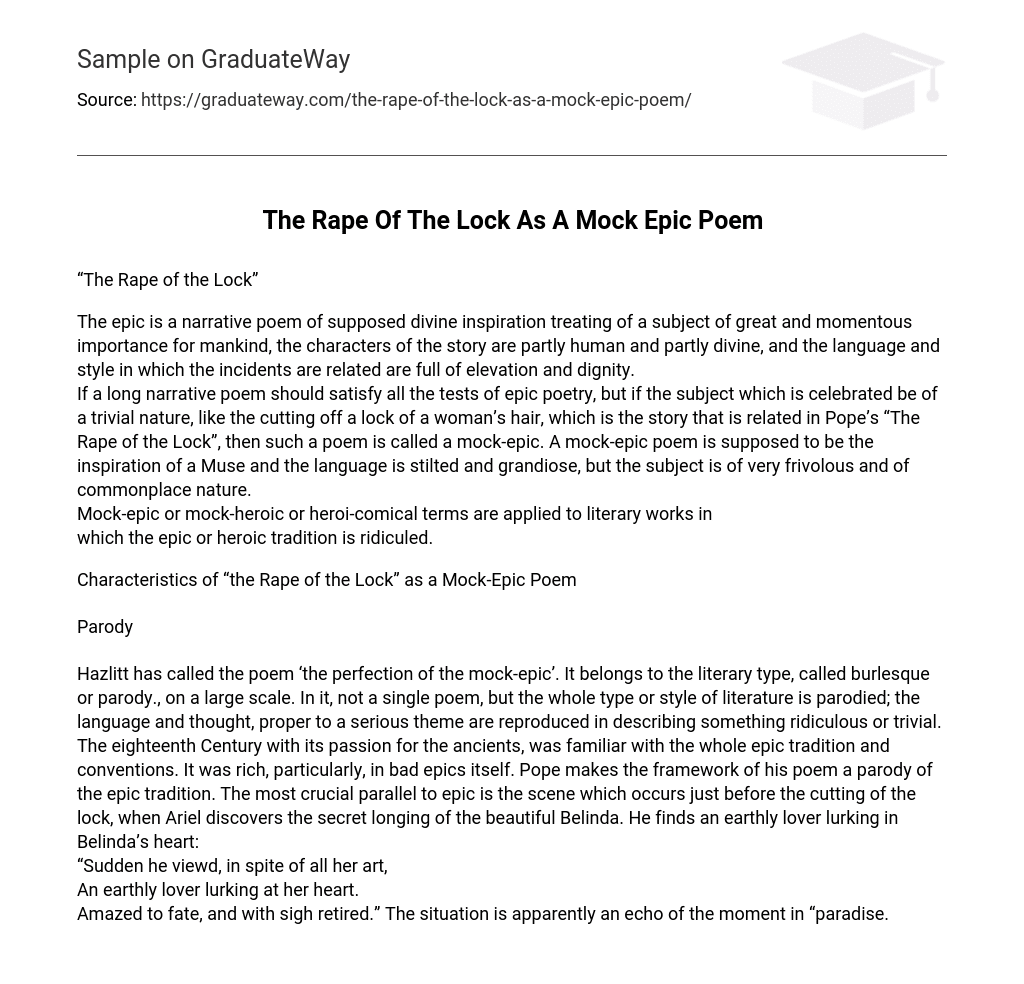“The Rape of the Lock”
The epic is a narrative poem of supposed divine inspiration treating of a subject of great and momentous importance for mankind, the characters of the story are partly human and partly divine, and the language and style in which the incidents are related are full of elevation and dignity.
If a long narrative poem should satisfy all the tests of epic poetry, but if the subject which is celebrated be of a trivial nature, like the cutting off a lock of a woman’s hair, which is the story that is related in Pope’s “The Rape of the Lock”, then such a poem is called a mock-epic. A mock-epic poem is supposed to be the inspiration of a Muse and the language is stilted and grandiose, but the subject is of very frivolous and of commonplace nature.
Mock-epic or mock-heroic or heroi-comical terms are applied to literary works in
which the epic or heroic tradition is ridiculed.
Characteristics of “the Rape of the Lock” as a Mock-Epic Poem
Parody
Hazlitt has called the poem ‘the perfection of the mock-epic’. It belongs to the literary type, called burlesque or parody., on a large scale. In it, not a single poem, but the whole type or style of literature is parodied; the language and thought, proper to a serious theme are reproduced in describing something ridiculous or trivial. The eighteenth Century with its passion for the ancients, was familiar with the whole epic tradition and conventions. It was rich, particularly, in bad epics itself. Pope makes the framework of his poem a parody of the epic tradition. The most crucial parallel to epic is the scene which occurs just before the cutting of the lock, when Ariel discovers the secret longing of the beautiful Belinda. He finds an earthly lover lurking in Belinda’s heart:
“Sudden he viewd, in spite of all her art,
An earthly lover lurking at her heart.
Amazed to fate, and with sigh retired.” The situation is apparently an echo of the moment in “paradise.





